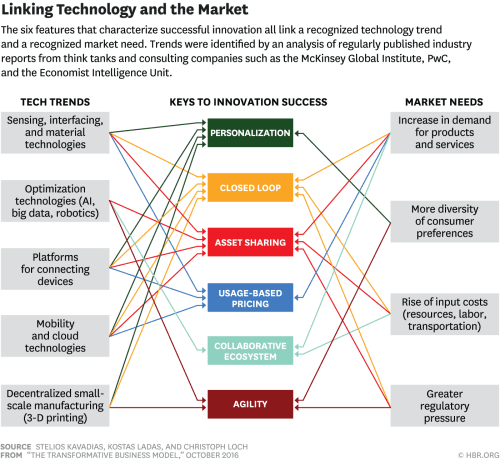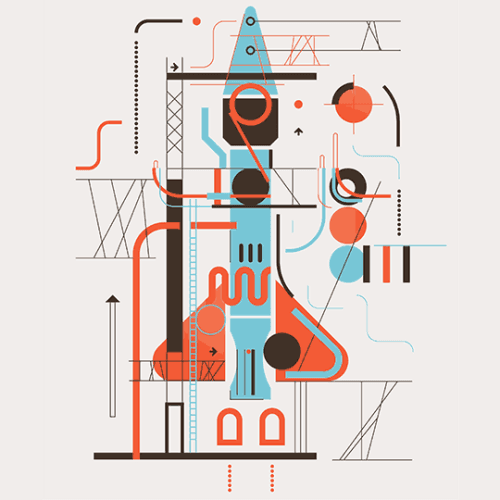Explore the World's Best Ideas
Join today and uncover 100+ curated journeys from 50+ topics. Unlock access to our mobile app with extensive features.
The Main Recurring Features Of Transformative Companies
The researchers looked for recurring features in the models and found six: personalization, a closed-loop process, asset sharing, usage-based pricing, a collaborative ecosystem, and an agile and adaptive organization. No model displayed all of them but having a higher number of features usually correlated with a greater chance of success at transformation. (The taxi service Uber can claim five of the six.)
24
129 reads
How Business Models Work
Definitions of the “business model” vary, but most people would agree that it describes how a company creates and captures value. The features of the model define the customer value proposition and the pricing mechanism, indicate how the company will organize itself and whom it will partner with to produce value, and specify how it will structure its supply chain.
Basically, a business model is a system whose various features interact, often in complex ways, to determine the company’s success.
26
69 reads
A Closed-Loop Process
Many models replace a linear consumption process (in which products are made, used, and then disposed of) with a closed-loop, in which used products are recycled. This shift reduces overall resource costs.
22
68 reads
The Six Keys to Success: A More Personalized Product or Service
Many new models offer products or services that are better tailored than the dominant models to customers’ individual and immediate needs. Companies often leverage technology to achieve this at competitive prices.
21
136 reads
Asset Sharing
Some innovations succeed because they enable the sharing of costly assets—Airbnb allows homeowners to share them with travellers, and Uber shares assets with car owners. Sometimes assets may be shared across a supply chain. The sharing typically happens by means of two-sided online marketplaces that unlock value for both sides: I get money from renting my spare room, and you get a cheaper and perhaps nicer place to stay. Sharing also reduces entry barriers to many industries, because an entrant need not own the assets in question; it can merely act as an intermediary.
23
38 reads
Usage-Based Pricing
Some models charge customers when they use the product or service, rather than requiring them to buy something outright. The customers benefit because they incur costs only as offerings generate value; the company benefits because the number of customers is likely to grow.
23
43 reads
A More Collaborative Ecosystem
Some innovations are successful because a new technology improves collaboration with supply chain partners and helps allocate business risks more appropriately, making cost reductions possible.
23
43 reads
An Agile and Adaptive Organization
Innovators sometimes use technology to move away from traditional hierarchical models of decision making in order to make decisions that better reflect market needs and allow real-time adaptation to changes in those needs. The result is often greater value for the customer at less cost to the company.
21
44 reads
IDEAS CURATED BY
Reese R.'s ideas are part of this journey:
Learn more about strategy with this collection
Essential product management skills
How to work effectively with cross-functional teams
How to identify and prioritize customer needs
Related collections
Similar ideas
5 ideas
5 Famous Business Models, That You Should Know
bstrategyhub.com
5 ideas
The Real Definition of Growth Marketing
reforge.com
8 ideas
Read & Learn
20x Faster
without
deepstash
with
deepstash
with
deepstash
Personalized microlearning
—
100+ Learning Journeys
—
Access to 200,000+ ideas
—
Access to the mobile app
—
Unlimited idea saving
—
—
Unlimited history
—
—
Unlimited listening to ideas
—
—
Downloading & offline access
—
—
Supercharge your mind with one idea per day
Enter your email and spend 1 minute every day to learn something new.
I agree to receive email updates








